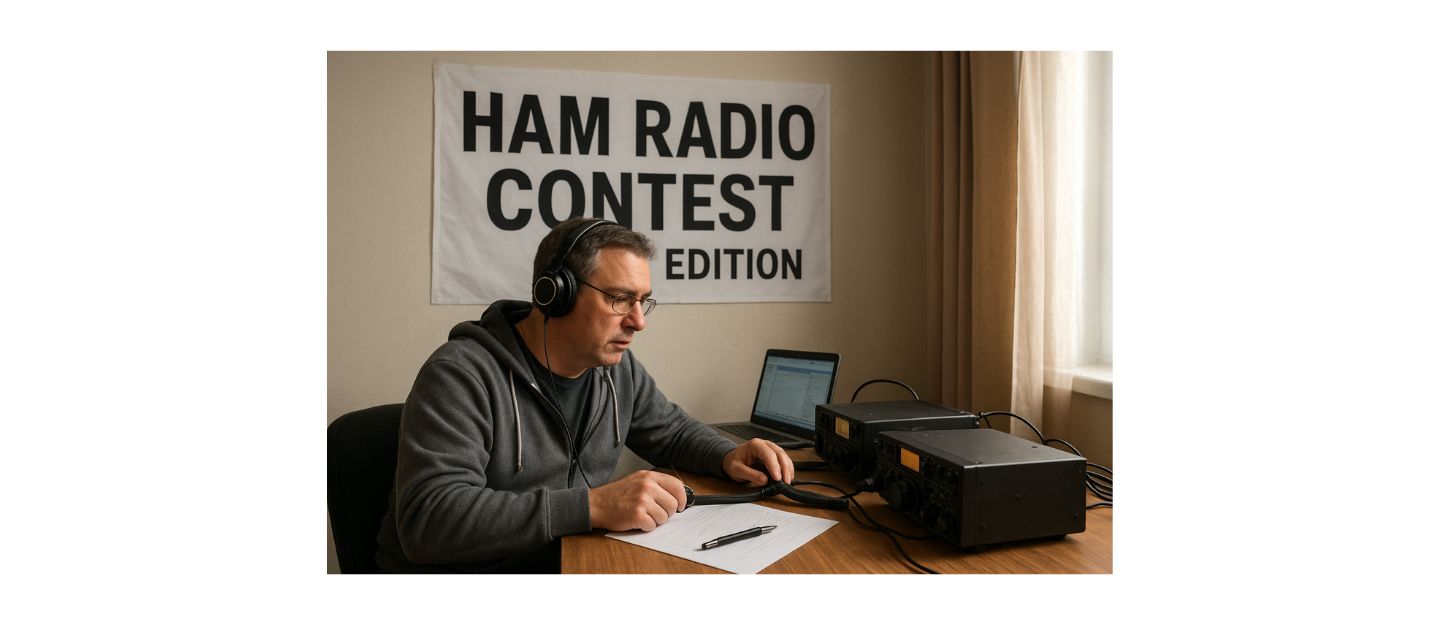Contesting and its challenges in amateur radio, contests are an intense activity where operators aim to make as many contacts as possible within a set period. Many new and experienced operators alike encounter challenges that can reduce efficiency and scores. For instance, improper logging, inefficient band management, and operator fatigue are frequent issues.
Contests demand both speed and accuracy, even small mistakes can significantly impact results. Therefore, understanding common pitfalls and implementing strategies to avoid them is essential for successful contesting.
Contesting and Its Challenges
Contests need proactive prevention to prevent challenges, her are some:
Mistake: Poor Station Preparation
One of the most frequent errors is insufficient station preparation. Operators often fail to check antennas, power supplies, or logging software before the contest begins. Consequently, equipment malfunctions can occur mid-contest, costing valuable time.
To avoid this, conduct a full pre-contest check, including testing transmitters, receivers, and antenna connections. Additionally, verify that software is updated and properly configured for contest logging. Preparing your station thoroughly ensures a smooth start and minimizes interruptions during peak operating times.
Mistake: Inefficient Band and Mode Management
Many operators lose opportunities by not managing bands and modes strategically. Jumping between bands without a plan or sticking too long on one frequency reduces contact rates. Furthermore, neglecting less crowded bands can leave easy points on the table.
To improve efficiency, develop a band plan that includes rotation schedules and mode preferences. Also, monitor band conditions and propagation forecasts to decide the best times to switch bands. By managing your operating time effectively, you can maximize contacts and reduce wasted effort.
Mistake: Poor Logging Practices
Accurate logging is critical, yet many operators make mistakes in call sign entry, exchange recording, or duplicate contacts. These errors can result in penalties or disqualifications. Consequently, maintaining an organized and disciplined logging routine is essential.
Use automated logging software when possible, and double-check entries before sending. Additionally, consider having a logging assistant if operating in a multi-operator station. Clear and accurate logging protects your score and prevents frustration after the contest.
Mistake: Ignoring Operating Etiquette
Contesting requires respect for other operators, but some participants overlook proper etiquette. For example, calling over others, repeating unnecessary transmissions, or hoarding frequencies can frustrate fellow operators and reduce efficiency. Moreover, ignoring band plans or QRM (interference) guidelines can cause conflicts.
To avoid these issues, follow established contest rules and etiquette, listen carefully before transmitting, and yield to higher-priority communications when necessary. Practicing good manners enhances your reputation and keeps the contest environment professional.
Mistake: Fatigue and Lack of Breaks
Operator fatigue is a subtle but impactful mistake that many underestimate. Long hours without proper breaks lead to slower response times, errors in logging, and decreased situational awareness. Consequently, performance suffers even if equipment and planning are perfect.
To prevent fatigue, schedule regular short breaks, stay hydrated, and rotate operators in multi-operator setups. Additionally, maintain comfortable seating and ergonomics to reduce physical strain. Proper rest and pacing directly improve efficiency, accuracy, and overall contest success.
Mistake: Overlooking Propagation and Conditions
Ignoring propagation forecasts and current conditions is a common mistake that reduces scoring potential. Operators sometimes persist on bands with poor propagation or fail to exploit favorable openings. Consequently, they miss opportunities for high-value contacts.
To avoid this, study propagation charts, monitor real-time conditions, and adjust your band plan accordingly. Additionally, be flexible and ready to switch bands quickly when openings appear. Understanding and responding to propagation improves contact rates and overall contest performance.
Mistake: Neglecting Equipment Maintenance
Equipment failures are often preventable, yet many operators neglect routine maintenance. Loose connectors, untested antennas, or worn cables can create unexpected downtime. Moreover, poorly maintained gear increases the likelihood of intermittent problems that are difficult to troubleshoot mid-contest.
Regularly inspect and maintain all equipment before and after contests. Cleaning connectors, tightening mounts, and testing transceivers ensures that the station operates reliably. Consistent maintenance prevents technical interruptions and supports optimal performance.
Mistake: Failing to Review and Analyze Performance
After the contest, some operators fail to review logs and analyze mistakes, missing opportunities for improvement. Without reflection, the same errors can repeat in future contests. Consequently, post-contest analysis is essential for growth and efficiency.
Examine logs for missed opportunities, duplicate contacts, and time management issues. Additionally, solicit feedback from other operators if possible. By learning from past contests, you can refine strategies, enhance operating skills, and avoid repeated mistakes.
ethernetStrategies for Avoiding Mistakes
To minimize errors, integrate preparation, planning, and self-discipline into your contest routine. Prepare the station in advance, develop a band and mode plan, and ensure accurate logging. Maintain etiquette and listen attentively to the contest environment. Schedule breaks and monitor operator fatigue.
Pay attention to propagation and adapt to changing conditions. Finally, perform routine equipment maintenance and conduct post-contest analysis. By implementing these strategies, operators enhance efficiency, reduce stress, and maximize scores.
Contesting and Its Challenges
Contesting and its challenges demand both technical skill and strategic thinking to prevent. Operators who continuously refine their techniques, learn from mistakes, and adapt to new conditions consistently perform better.
Furthermore, staying current with technology, rules, and best practices provides a competitive edge. Because contests combine speed, accuracy, and strategy, avoiding common mistakes is not merely advantageous—it is essential. By committing to ongoing improvement, operators achieve higher scores, greater satisfaction, and long-term success in amateur radio contests.

